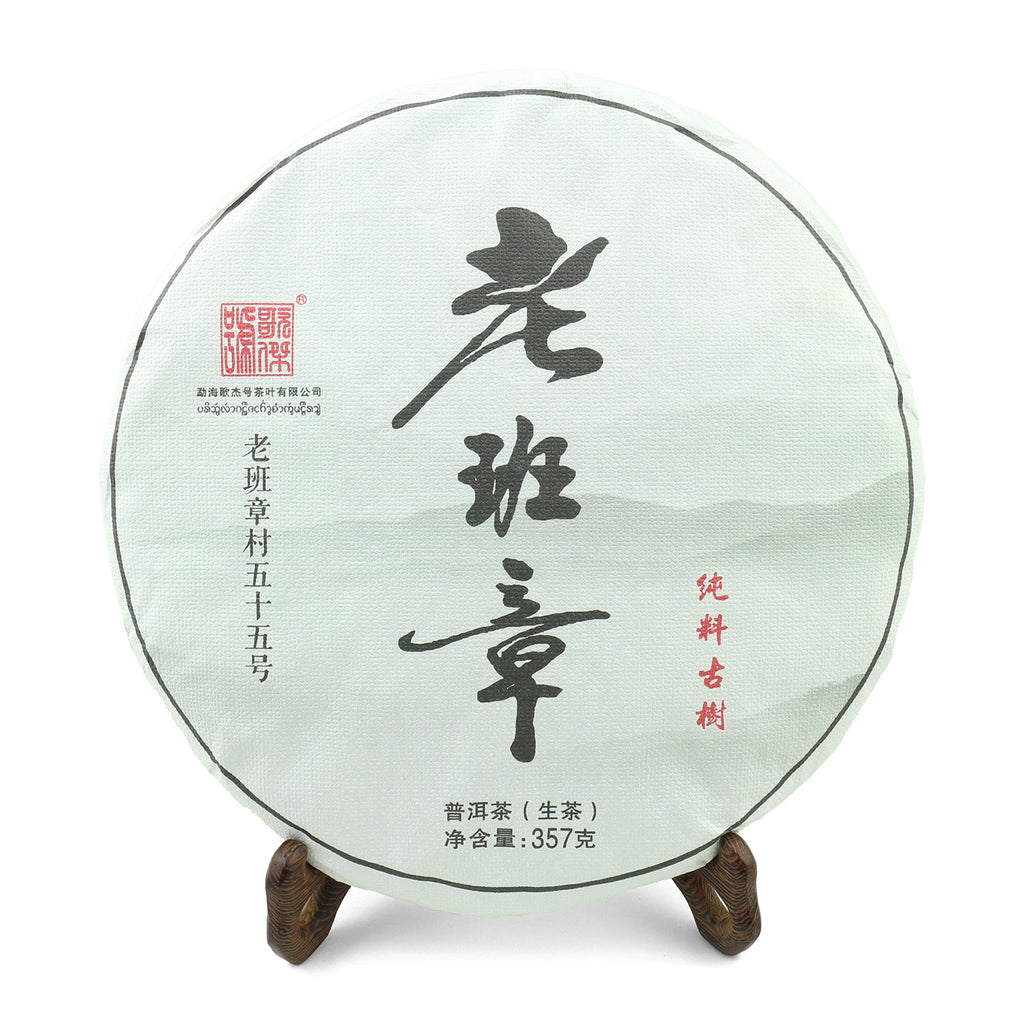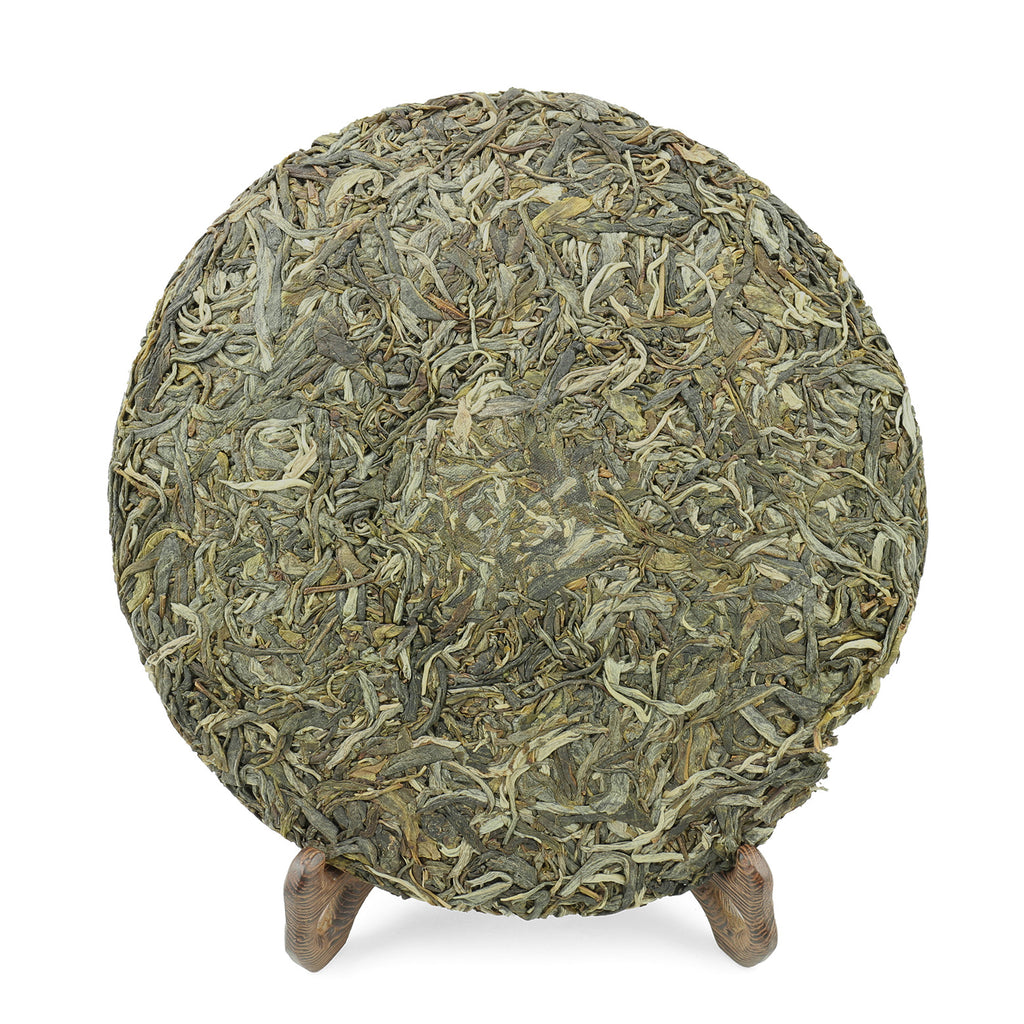Gushu
Laobanzhang Gushu 2024
For lovers of powerful, yet intricate Shengs.
Harvested from ancient trees in the garden of house no. 55 in Laobanzhang, the king of Sheng Pu’er has graced us with another audience this year. Its green leaves show a style of processing that’s typical in Menghai teas - a shorter Sha Qing with higher temperature. From the very first steep, this tea is bold and powerful; its dense and vibrant infusion brings a focused bitterness reminiscent of citrus albedo paired with the mellow sweetness of sticky rice and the freshness of honeydew melon. While it provides varied and deep flavors, what truly stands out about this tea is the intricate interplay of sensations that unfolds across the entire oral cavity while drinking it. A strong, but not unpleasant astringency on the back of the palate that reaches down towards the throat but moves closer towards the lips on subsequent steeps coupled with a strong Hui Gan - a sweetness that returns to fill the mouth after swallowing the tea. A sip of water after each steep will taste like sugary nectar. A tea that demands attention and delivers on all fronts.
Written by Sigi
Authenticity
Laobanzhang is one of the biggest names in the world of Pu'er, with many fake teas being sold under that label online. To make sure that Nannuoshan can offer an authentic product and to show you what it looks like, Gabriele visited the garden this tea comes from himself, where he took this this video.

- ORIGIN: House no. 55, Laobanzhang, Menghai, Xishuangbanna, Yunnan, China
- ALTITUDE: 1750-1800m
- MEANING: Old Banzhang (the old Banzhang village, as opposed to Xin Banzhang, the new village)
- CULTIVAR: Da Ye Zhong
- HARVEST TIME: April 2024
- TASTE: Citrus albedo, sticky rice, honeydew melon
- Quantity: 6g / 500ml
- Water temperature: 100°C
- Infusion time: 5 min
- Quantity: 5g / 100ml
- Water temperature: 100°C
- Several short infusions
For best results in gongfu cha, brew in a Yixing teapot.







